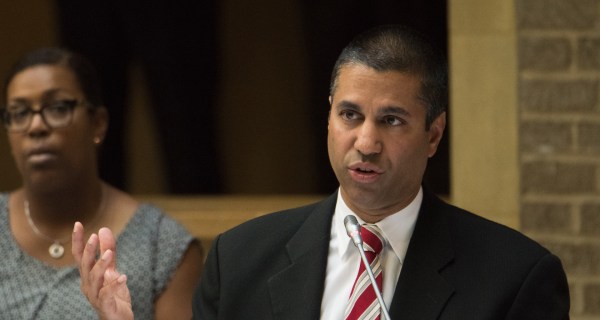Telecom group will ‘aggressively challenge’ any state enforcing net neutrality rules

States attempting to preserve net neutrality regulations will soon see challenges in court, according to a blog post from the leading lobbying firm for the telecom industry.
USTelecom, which represents major broadband providers, says it will fight current state-level net neutrality rules and any more that may come in the future.
The post, published Monday, is a response to states that have acted individually to govern internet traffic in a way similar to the Obama administration’s net neutrality rules, which the Trump administration rolled back recently. Five governors have issued executive orders that leverage the purchasing power of their states to force companies to adhere to net neutrality principles, and Washington and Oregon have passed laws explicitly establishing net neutrality as the status quo.
More than half of U.S. states are considering similar legislation. The Obama-era rules prevented internet service providers from giving priority access to particular content or services over any other. The Federal Communications Commission voted in December, however, to dismantle them.
Any effort to regulate should come from the top down, USTelecom said.
“We will aggressively challenge state or municipal attempts to fracture the federal regulatory structure that made all this progress possible,” the blog post says, referring to the “ever more sophisticated, faster and higher-capacity networks” installed across the U.S. as the progress that broadband providers have made over the last 20 years.
USTelecom counts AT&T, Oracle, Verizon and CenturyLink representatives on its board of directors and supports the interests of everything from the “nation’s largest telecom companies to small rural cooperatives.”
The post, authored by USTelecom CEO Jonathan Spalter, states the intention of broadband providers is to “uphold net neutrality protections for all” — but not through individual laws and orders at the state level.
“Protections should be no different for consumers in Minnesota or Iowa than they are in California or Florida. Equally true, consumers deserve consistent safeguards across the online world, whether engaging with Facebook, Google, AT&T or Comcast,” Spalter writes.
USTelecom and the companies it represents have played a large role the last three years in lobbying against the Obama-era rules.
When asked by StateScoop for additional clarification on the group’s position, a USTelecom spokesperson said the blog post is self-explanatory — when states act in contradiction to the FCC’s reversal on net neutrality, USTelecom will look for “legal opportunities.” The spokesperson said the group doesn’t yet have a specific legal strategy.
A long fight
USTelecom isn’t a stranger to lawsuits against the Obama-era vision for net neutrality. In 2015, it sued the FCC over its re-classification of broadband providers as common carriers under Title II of the federal Communications Act of 1934 and Section 706 of the 1996 Telecom Act. The reclassification established net neutrality protections on a federal level.
USTelecom lost its suit, but kept lobbying for the abandonment of federal net neutrality regulations over the next three years, until Ajit Pai became FCC commissioner and helped to undo them. Pai, a former Verizon lawyer, also claimed that the FCC has preemption authority over state and municipal net neutrality rules, with urging from Verizon and other companies.
The group has also been unclear in the past on the question of whether states should be able to assert authority in telecom regulation — in 2016, the group celebrated a ruling that allowed states to limit the growth of municipal broadband networks, giving states more authority than the federal government.
Washington State Rep. Drew Hansen, the lead sponsor in Washington’s net neutrality law, says he isn’t concerned.
“There’s no fracturing in a situation where the federal government says nothing about net neutrality and a state government says ‘you shall protect net neutrality,’ either by explicit law or by the use of the state government’s purchasing power in Montana’s case,” Hansen told StateScoop. “Those three things — the state law that protects net neutrality principles, the Montana executive order that says we will only purchase from providers that abide by net neutrality principles and the federal government’s complete abdication of the field — there’s no reason those three things can’t coexist all at once.”
Hansen says the FCC’s claims of preemptive authority are also puzzling. States have historically had broad consumer protection authority, which net neutrality falls under. Until the FCC identifies what particular congressional statute or constitutional provision grants broad preemptive authority over the state’s broad consumer protection powers, Hansen said, the FCC doesn’t have the power to preempt states on this issue.






